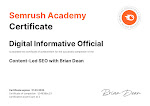What is singing and its importance?
What is singing and its importance?
Singing, an art as old as humanity itself, holds a profound significance in cultures worldwide. It goes beyond mere vocalization, embodying emotions, stories, and expressions. In this article, we delve into the essence of singing and explore its multifaceted importance in society.
Understanding Singing
What is Singing?
Singing is the act of producing musical sounds with the voice, typically accompanied by rhythm and melody.
It involves the modulation of pitch, tone, and volume to convey emotions and messages effectively.
Types of Singing
Singing encompasses a wide range of styles and genres, including classical, pop, rock, jazz, folk, and more.
Each style presents its unique vocal techniques and characteristics, catering to diverse preferences and tastes.
The Importance of Singing
Singing holds immense cultural, emotional, and physiological significance in human society.
Cultural Significance
Singing has been integral to cultural rituals, ceremonies, and traditions throughout history.
It serves as a means of preserving heritage, passing down stories, and fostering community cohesion.
Emotional Expression
Singing provides a powerful outlet for emotional expression. Whether joyous or melancholic, songs can evoke and convey a myriad of emotions, resonating with listeners on a deep and personal level.
Physical and Mental Benefits
Engaging in singing offers numerous physical and mental health benefits.
It promotes relaxation, reduces stress, strengthens respiratory muscles, improves posture, and boosts cognitive function.
Singing as a Form of Communication
Historical Context
In ancient civilizations, singing played a crucial role in communication, enabling individuals to convey messages, relay stories, and transmit cultural knowledge across generations.
Modern Applications
In the modern world, singing continues to serve as a potent form of communication.
From protest songs advocating social change to commercial jingles promoting products, music remains a universal language that transcends barriers.
Singing in Education
Early Childhood Development
Introducing singing into early childhood education enhances linguistic development, stimulates creativity, and fosters social skills.
Nursery rhymes, lullabies, and children's songs play a vital role in shaping cognitive abilities and emotional intelligence.
Academic Achievement
Research suggests that students involved in choir programs tend to excel academically.
Singing enhances memory retention, concentration, and discipline, contributing to overall academic success.
Professional Singing
Career Opportunities
For many individuals, singing transcends a hobby and becomes a viable career path.
Opportunities in the music industry abound, including recording artists, session singers, vocal coaches, and performers in musical theater.
Impact on Society
Professional singers wield significant influence in society, using their platform to address social issues, inspire change, and uplift communities.
Their music becomes a catalyst for unity, empowerment, and cultural transformation.
Conclusion
Singing is not merely a recreational activity but a profound expression of human creativity, emotion, and identity. Its importance resonates across cultural, emotional, and educational domains, enriching lives and shaping societies.
As we celebrate the power of singing, let us recognize its enduring impact on individuals and communities alike.
FAQs (Frequently Asked Questions)
Is singing only for those with natural talent? Not at all! While natural talent can be advantageous, singing is a skill that can be developed and improved with practice and training.
Can singing help improve my mood? Yes, singing has been shown to release endorphins, the body's feel-good hormones, which can uplift mood and reduce stress.
Are there any age restrictions for learning to sing? Absolutely not! People of all ages can learn to sing and enjoy its benefits, from young children to seniors.
What if I'm shy about singing in front of others? Many people feel shy or self-conscious about singing in public, but with supportive environments and encouragement, confidence can grow over time.
How can I improve my singing voice? Enrolling in voice lessons with a qualified instructor, practicing regularly, and staying patient and persistent are key steps to improving your singing voice.






















Post a Comment